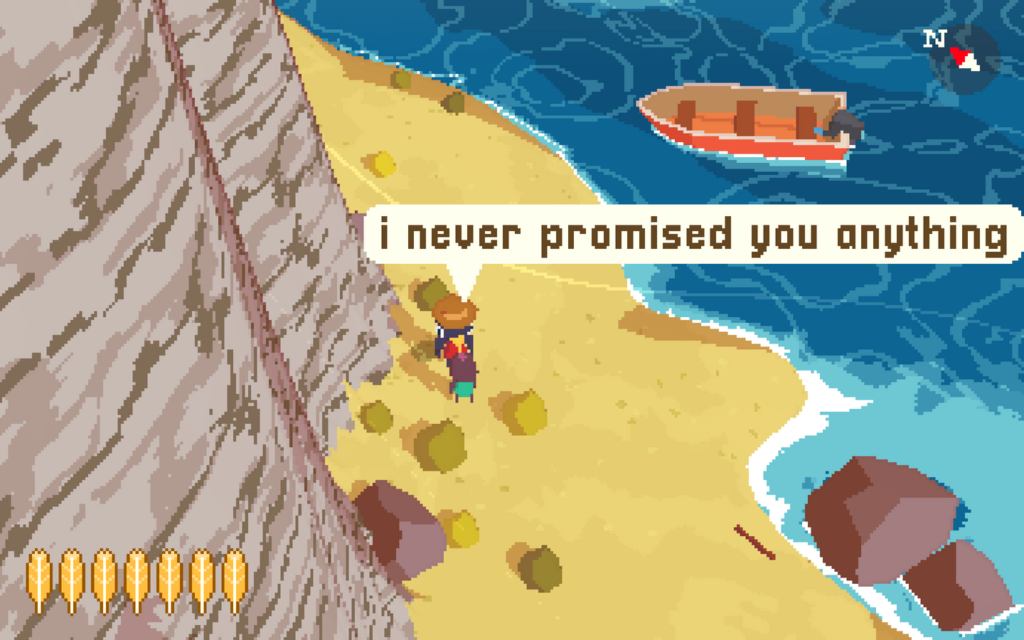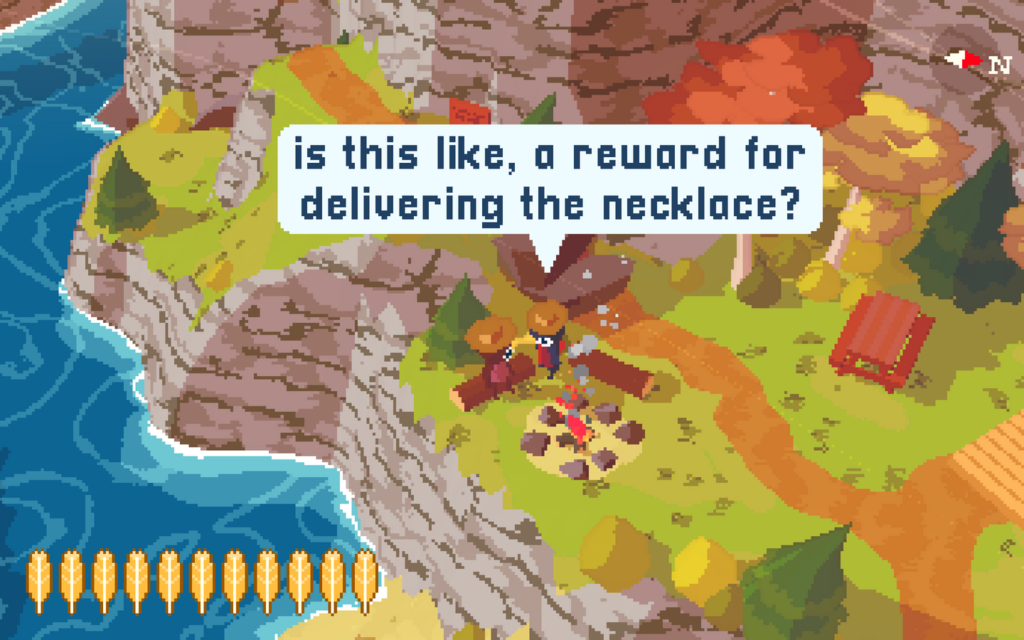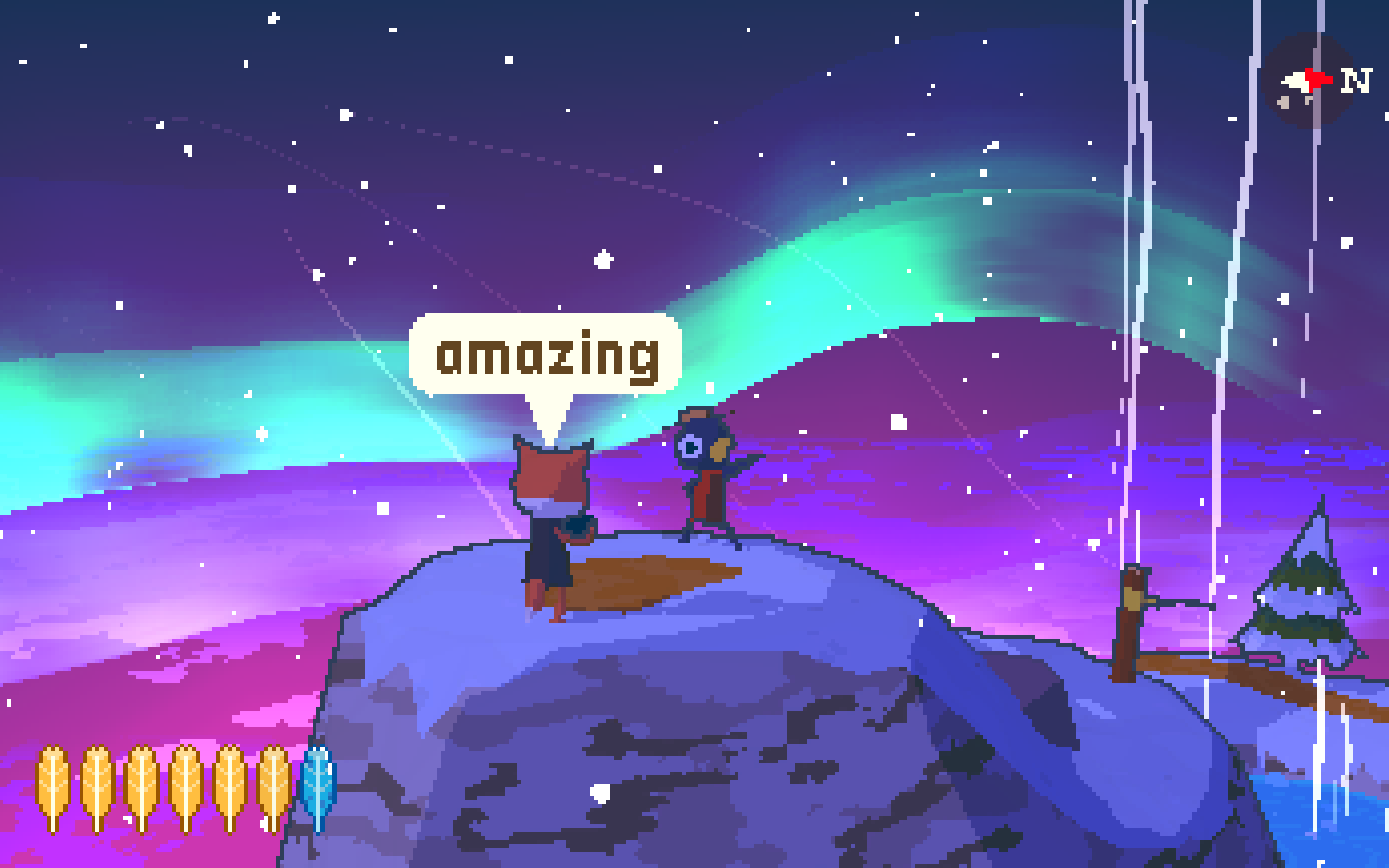The motivation presented to the player in A Short Hike is clear: get to the top of the mountain to make a phone call. The source of this comes from the game itself. However, even if the player wanted to beat this objective in the shortest amount of time possible, at least two golden feathers, an item used for flying and climbing stamina, are required. The game forces the player to explore the environment and its characters in order to achieve this goal. Although at a certain point this exploration will likely come entirely from the player, as the setting is rich with activities and includes a host of intriguing personalities, it is still required, at least to an extent. In class, one of the important aspects of slow games that came up was that of freedom choice. I would argue that, because of the way in which A Short Hike requires exploration, it seems linear and directed, traits that would take it away from its position in the category of “slow game” altogether.
There are many points of commentary throughout the game that show self awareness towards the quests and their rewards. For example, one of the first characters the player comes across, Jen, is asking for 15 seashells and refuses to elaborate what they’re for. Upon completing this task, Claire, the player’s character, asks for a reward, to which Jen replies, “I never promised you anything.”

This seemingly pokes fun at the arbitrariness of sidequests in games. It is all but expected that the player will receive compensation for their time and effort, and the game seems like it’s flipping the script, rewarding the player with nothing. However, Jen then asks the player to deliver it to her Aunt, and after doing so, gives the player a golden feather. The expectation is fulfilled just as it would be in any other sidequest-filled game.

For me, the main thing that made this game feel unique was not how much freedom I had, but how low the stakes were. In other RPGs, most sidequests are at least tangentially important to a character’s wellbeing. In A Short Hike, the relaxed nature of the island’s inhabitants made me, in turn, feel relaxed. I didn’t feel like I had any rush to get to the top of the mountain, and nothing was reminding me to get there. It’s in this way that A Short Hike stood out to me – it was an amazingly cozy, albeit not “slow” experience, that left me feeling warm inside.

